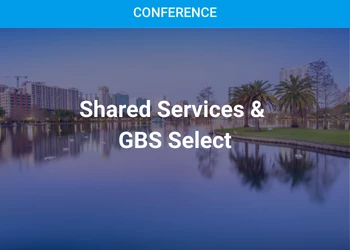
Investing in a Shared Services Culture
For Global Shared Services Centers, investing in employees’ learning, unlearning and re-learning takes a considerable amount of time, resources and effort. There are no guarantees, however, that the investments will pay off and that employees will continue to stay and contribute to the center.
Studies indicate that training investment is one of the key reasons people join global capability centers/global shared services centers – to learn, upskill and be future-ready. Only when capability centers view learning and development as a strategic investment rather than a cost, will there be a significant shift in mindset.
So: How can global capability centers create a culture of learning? Or does this need to be limited to a talent development model?
Building a culture of learning where staff take charge of their own development is crucial for the success of global shared services centers.
- Know the current issues: Understanding your employees’ aspirations and interest levels can help set the context for future interventions. Conduct focus groups and in-depth studies to ascertain employees’ perceptions about learning. It is bound to differ between individuals although appreciating how they think and engage can help evolve your strategy. Knowing that most global capability centers will have different generations of staff at the workplace will also be relevant in tailoring needs.
- Focus on what you can control: Often organizations struggle with getting participation and invest a lot of effort in filling up training rooms. Instead, link learning to personal and professional growth and make that visible among staff. Demystify learning and help employees gain from job rotations, internal transfers and on-the-job grooming – or even multi-country interactions. Make learning at different levels – individual, peer-to-peer, in teams, at the functional stage and at the organizational level.
- Help staff be more future-ready: Building capabilities begins with investing in training. Provide trainings on contemporary subjects and on emerging topics. For example, becoming adept at digital technology is crucial for evolving global business services players. Training in turn leads to learning and learning in turn leads to personal and professional development. Which culminates in building skills and capabilities for life. When shared services centers demonstrate value employees can get beyond their current role, there is a greater chance of them giving back more in return.
- Make learning top-of-mind: An additional channel or a new form of training may not be what staff want. Make learning simpler and easier. For example, everyday learning can happen in team meetings with time slotted for ‘reflections’ and ‘lessons from yesterday’. Highlight staff who are outliers with learning and share stories of their practices.
- Gamify learning: Rather than identifying skill gaps for staff, empower them to design their own learning path can go a long way in improving engagement and building a culture of learning. Recognize how different generations learn and provide the framework for staff to get equipped. Challenge them to think independently and link it with knowledge harnessing initiatives within. For example, use real-life cases from every day interactions to ‘coach’ staff on best practices and behaviors.
Employee learning forms an important dimension of any leading global shared services entity’s operating model. Gauging the appetite for learning, creating frameworks that work across the business, embedding learning in everyday situations and recognizing staff who make learning a habit can go a long way in developing a culture that lasts.
Avoid making it seem like more work for staff – they are busy and will need a strong reason to invest even more time unless it seems easy and relevant to their lives. Continue giving reasons to staff on why they must stay ahead of the curve with learning every day and sooner than later your organization will have a thriving culture.
Aniisu K. Verghese is an award-winning corporate communications and social responsibility practitioner with over 18 years of experience in leading multinational organizations. He is the author of Internal Communications – Insights, Practices and Models, and is passionate about engaging communicators and students through workshops, speaking engagements, teaching assignments and blogging. He has served on the International Association of Business Communicator (IABC)’s South India Chapter Board, the SABRE Awards - South Asia Jury and the IABC’s Gold Quill Asia Pacific Award panel. Aniisu is the recipient of the 2015 PR Hall of Fame Award from the Public Relations Council of India. He can be reached on LinkedIn. Views expressed in this post are personal.



























